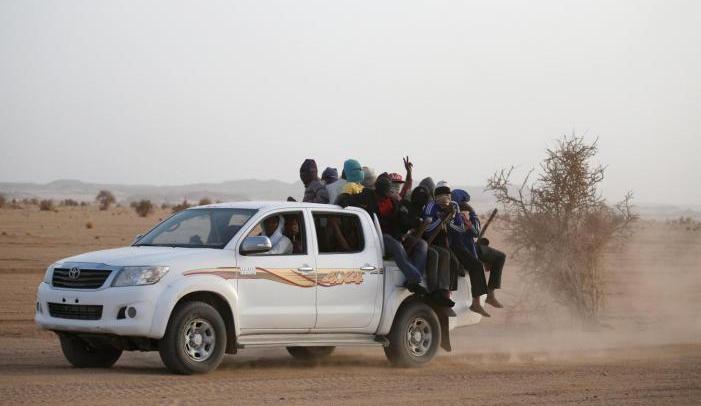10 Sudanese illegal migrants killed in car crash in Libya

May 25, 2018 (KHARTOUM) Ten Sudanese illegal migrants have been killed and eleven others injured in a car accident in Libya.
Head of a programme on reducing illegal migration and promoting the voluntary return of Sudanese community in Libya Malik Mohamed Salih said “a truck carrying 21 Sudanese illegal migrants crashed on the highway linking Jallo and Ajdabiya towns”.
He pointed out that 10 migrants have been killed and 11 others injured, some seriously, saying the injured were transferred to Benghazi Hospital.
Names of the dead include: Mohamed al-Ajab Ahmed al-Tahir from Jazeera, Abdel-Wahab Mohamed Dafaa Allah from East Jazeera, Mohamed Ibrahim Ali Mohamed from East Jazeera, Hassan Imad Hassab al-Rasoul from Wad El-Sid, Bushra Daw al-Beit Fadal Allah from El-Dibaibat, Dadr al-Tamam Hamad Balla Musa from Tamboul, Babikir Mohamed Ahmed from Kordofan, Ali Abdel-Jaleel Kenana from 24 Al-Qurashi, Saeed Abdo Kenana from 24 Qurashi and Ahmed from Kordofan.
Following the fall of Muammar Gaddafi’s 40-year-rule in 2011, Libya has slid into chaos and has become the most important transit country for illegal migrants to Europe.
In May 2016, Khartoum proposed to establish a joint force to monitor the common borders between Sudan and Libya to curb the movement of Darfur rebels and fight against illegal migration and terror groups.
The UN migration agency (IOM) in April 2017 said it had received reports about the existence of slave markets in Libya where West African migrants are being bought and sold openly.
Also, the CNN which investigated the reports broadcasted footage of a live auction where black youths are sold to North African buyers. The reported filmed by the journalists of the international news channel showed that the migrants are sold for $400.
Sudan is considered as a country of origin and transit for the illegal migration and human trafficking. Thousands of people from Eritrea and Ethiopia are monthly crossing the border into the Sudanese territories on their way to Europe through Libya or Egypt.
The East African nation has also forged a strategic partnership with several European countries and the EU to combat illegal migration and human trafficking.
(ST)
